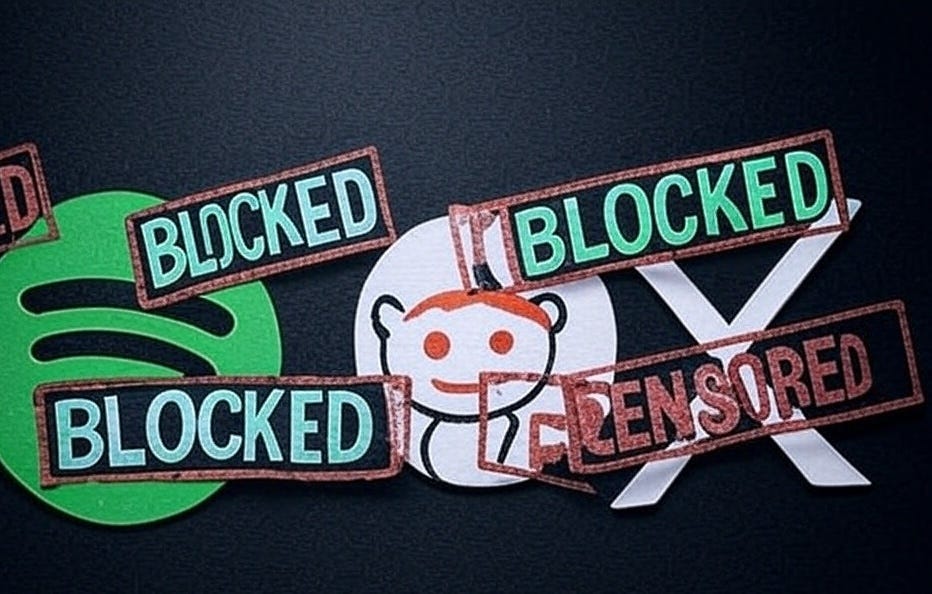Welcome to Big Brother's Internet
What the Online Safety Act means for access to information and our right to privacy
This Online Safety Act finally kicked in last week in the UK, and it isn’t pretty. And, of course, it’s all under the guise of protecting us. How noble it is of the government to care so much for us. Big brother is always watching, right?
So much of this is being placed under the banner of “protecting children,” so as result, you might now have to share your government ID or even facial scan just so you can listen to Spotify, scroll YouTube or post on/browse BlueSky, Reddit, Discord, Grindr, X—and even Wikipedia.
And while we might want to keep young people from inappropriate content, perhaps that is best monitored by their parental units? Not their nanny (state). How do we even determine what’s age appropriate or not? Sure, explicit content might be obvious—but what about candid discussions of sexual topics that might affect their lives directly? It’s not as if they turn 18 and immediately go from child to adult. Legally, yes. But in the practical world? No.
The legislation would impose…




